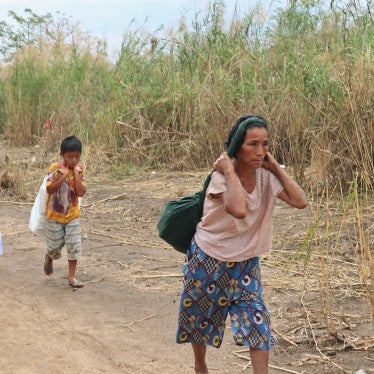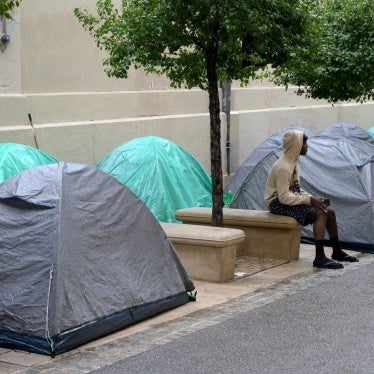Unprecedented numbers of asylum seekers and migrants unable to find protection close to home or reach safety using legal channels are turning to smugglers and thereby risking, and losing, their lives in the world’s oceans. Instead of mustering life-saving political will, states are responding with a range of policies designed to keep them out and dissuade others from heading their way.
So far this year, at least 1,800 people have drowned in the Mediterranean Sea. A staggering 61 percent of the approximately 65,000 reaching EU shores to date were from Afghanistan, Eritrea, Somalia and Syria. All four countries are ravaged by armed conflict or serious human rights violations, with neighboring countries already hosting millions of refugees. Fences and pushbacks at European Union land borders with Turkey have left many Syrian and Afghan asylum seekers with no option but to take boats across the Aegean Sea to reach the EU.
EU commitments to increase search and rescue operations in the Mediterranean could save the lives of many people, but we remain concerned about other proposals, including the destruction of smugglers’ boats and screening asylum seekers in North Africa. Finally, some governments have rejected proposals to help spread refugee screening across the EU—which would send a clear message that states are committed to swiftly and fairly identifying and protecting those in need— sending a clear message that some countries are expected to continue to deal with the lion’s share of asylum claims.
Ethnic Rohingya fleeing widespread persecution in Burma, and Bangladeshi asylum seekers and migrants, are turning to smugglers in record numbers—double those in 2014—to take them across the Bay of Bengal and Andaman Ocean to the Malacca Straits in Southeast Asia. After weeks or months of abuse and neglect in unseaworthy smugglers’ boats without adequate food or water, Indonesia, Malaysia and Thailand pushed back many to sea, claiming they had no duty to rescue or screen or protect passengers. After an international outcry sparked a regional meeting, Indonesia and Malaysia, but not Thailand, pledged to temporarily accept about 7000 people, yet demanded the international community repatriate or resettle them within a year.
These measures follow Australia’s towing boats of “illegal boat arrivals” out into the high seas, transferring boats of Sri Lankans and Vietnamese to their governments without proper asylum screening, and setting up remote off-shore asylum processing centers where those trying to reach Australia by boat are detained in abysmal conditions while they go through asylum screening. Those found to be refugees—72 percent as of early May—cannot go to Australia. Some from Nauru are to be transferred to Cambodia under a deal between Australia and the Cambodian government.
Governments around the world should respond to these crises with effective search and rescue operations, and ensure accountability for any failure to respond to situations of distress at sea. Those rescued should be swiftly taken to the nearest safe harbor and be given access to fair and efficient asylum procedures. States should ensure the right to seek asylum at their land and sea borders.
States should facilitate asylum seekers’ ability to safely travel to countries to seek protection including through increasing humanitarian visas, easing restrictions on family reunification, and allowing asylum applications through embassies in third countries. They should also increase refugee resettlement and generously support other states hosting large numbers of refugees through financial or other means. Finally, anti-smuggling efforts should not put the rights or lives of migrants and asylum seekers in jeopardy or have the effect of denying them access to international protection.





